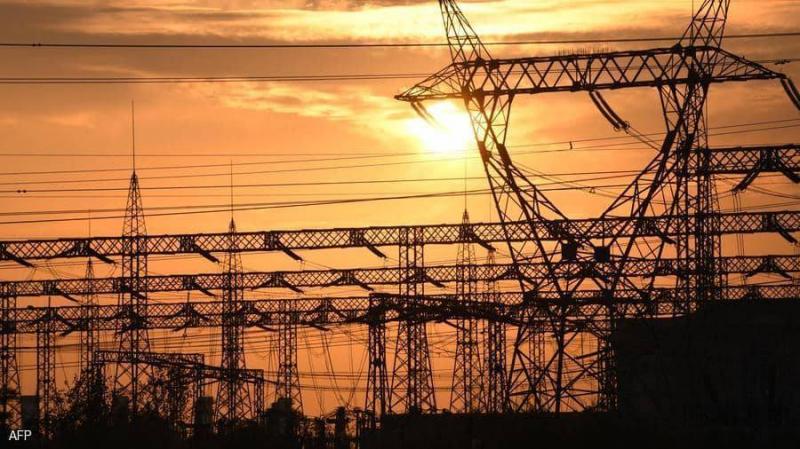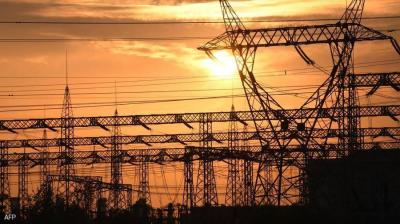Under the title "Electricity in Iraq... Who is Behind its Targeting?", Sky News reported that the issue of electrical energy in Iraq has recently come to the forefront due to a severe increase in temperatures and repeated targeting of power towers in remote areas. Security sources and Iraqi politicians have discussed entities and individuals behind these incidents, aiming for financial gains.
Recently, several Iraqi provinces have seen an "unprecedented" wave of attacks on electricity transmission towers, especially in remote, uninhabited areas that are difficult to protect. This situation has prompted security forces to act swiftly to address the crisis, particularly due to a lack of monitoring equipment and special tools like balloons and drones. Provinces such as Salah al-Din, Kirkuk, and parts of Diyala have borne the brunt of these attacks, typically carried out using explosives detonated remotely. This has led both security forces and local communities to believe that the ISIS terrorist organization is involved, especially since these incidents occur in areas that often witness extremist activity.
However, security sources and members of parliament have recently indicated that there are influential individuals and entities behind these incidents motivated by financial gains, particularly from the replacement of damaged towers and the supply of fuel for private generators, which sometimes serve as an alternative to national energy supplies across the country.
Benefiting Entities
Iraqi parliament member from Salah al-Din, Jassem Jabara, stated that "benefiting entities stand behind these operations, as there are individuals who trade in fuel supplied for private generators, and if the electric power continues, they will incur losses." He further stated, as a member of the Parliamentary Security and Defense Committee, that "the benefiting parties might even be within the Ministry of Electricity itself, especially those involved in maintenance, or tower manufacturers, and possibly security entities could also benefit from this, though we do not deny that ISIS might be involved as well."
These covert incidents have recently pushed the Iraqi Interior Ministry to contract with a Chinese company to purchase drones for the protection of electricity lines, as these attacks exacerbate the persistent electricity problem in the country, particularly in summer when power outages are widespread.
Iraq relies on private generators owned by traders or ordinary citizens to cover part of daily operations, since the national network does not provide complete supply hours as an alternative plan. Political networks and influential entities own some of these generators, which yield substantial profits given the increasing amounts collected from monthly subscriptions. If national power were available, the owners of these generators would face significant losses due to reduced operation times, leading to lower revenues or potentially eliminating these alternatives altogether.
30 Attacks in a Month
An officer in the Iraqi Interior Ministry said that "last month, there were more than 30 attacks on power towers in several provinces, notably Salah al-Din, Diyala, Kirkuk, and Nineveh, the majority in remote areas outside security duty zones or in locations not specified by the responsible forces, complicating the tasks of security forces and making protection difficult."
The unnamed officer shared with Sky News that "the possibility of non-terrorist individuals being involved in targeting these towers is very plausible for several reasons; primarily, some targeted sites are near local populations, which makes it impossible for ISIS to be behind such acts. Furthermore, the increase in attacks recently indicates ISIS possesses significant strength enabling it to create such disturbances, which contradicts security indicators that suggest the organization is considerably weakened."
He noted that "investigations into these operations have not clarified the nature of the targeting, often merely labeling these incidents as 'terrorist attacks.'"
In Nineveh province, which has suffered significant destruction due to the war against ISIS, the electricity crisis has also deepened, as the operations have directly impacted the city's power supply, reducing daily operating hours from about 20 to approximately 14-15.
Intentional Explosions
Prime Minister Mustafa al-Kadhimi stated that there are repeated, deliberate attacks on electricity towers in several provinces. In his remarks, al-Kadhimi indicated that "these attacks affect the hours of energy supply to the areas and exacerbate citizens' suffering," instructing operational leaders and intelligence agencies to address these incidents and protect power towers while pursuing criminal groups.
Strategic expert, Thamer al-Bayati, emphasized the necessity of deploying armed drones in areas subjected to destructive targeting, noting that most of these areas serve as hideouts for ISIS, which aims to convey messages that it remains present in the Iraqi scene and possesses strength.
Al-Bayati believes, in his conversation with Sky News, that "protecting the towers is a complex issue due to their distance from residential areas, making it challenging for military forces to establish patrols nearby. Thus, a new strategy must be adopted, such as using armed thermal cameras to address targets upon detection."




